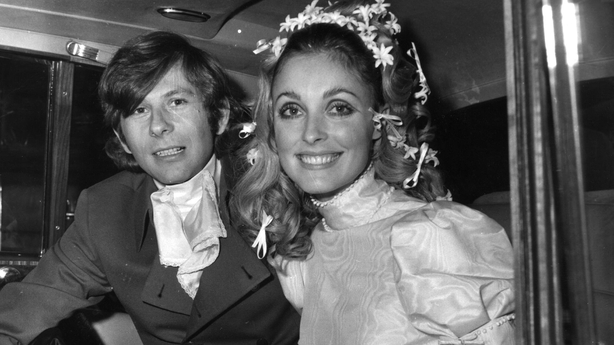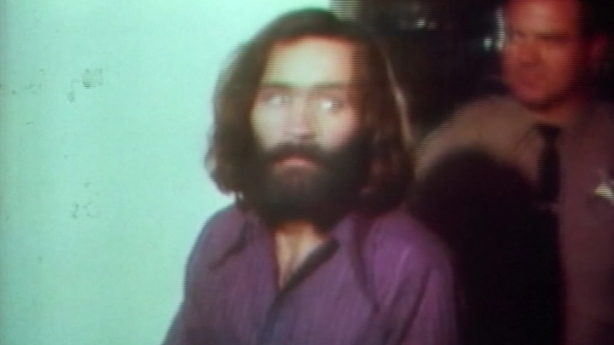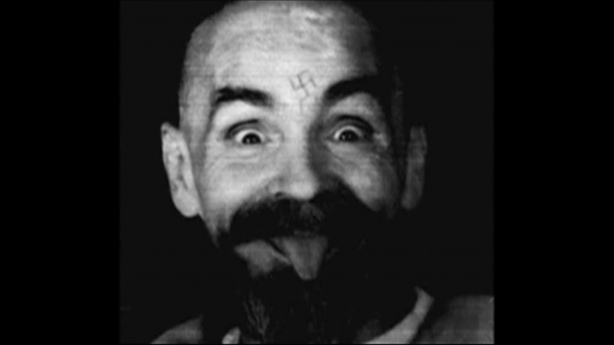Charles Manson, the cult leader who masterminded a savage killing spree in the United States in the late 1960s that shocked the world, has died aged 83, California prison officials said.
Manson died of natural causes at 8.13pm yesterday (2.13am Irish time) at a hospital in Kern County, the California Department of Corrections and Rehabilitation said in a brief statement.
Debra Tate - the sister of Manson's most famous victim, Sharon Tate - told celebrity website TMZ that she received a call from prison officials notifying her of Manson's death.
Manson was earlier moved from the Corcoran State Prison to a hospital in the city of Bakersfield, in Kern County, to be treated for an unspecified illness, US media reported.
In the late 1960s, Manson headed an apocalyptic cult that committed random murders in upscale mostly white neighbourhoods of Los Angeles - unleashing a wave of panic in the city and beyond.
The aim was for African Americans to be blamed, in the hope of sparking what he believed to be an impending and apocalyptic race war.
His "Family" disciples committed at least nine murders, but it was the horrific killing spree of seven people on 9-10 August 1969 that sealed his notoriety - and earned him life in prison.
The most famous victim was 26-year-old actress Sharon Tate, the heavily-pregnant wife of director Roman Polanski, who pleaded for the life of her unborn child before she was stabbed to death.

Manson was not present, but ordered the killings.
The horrifying episode was followed by a double-murder the following night of a supermarket executive and his wife; the two-day spree became known as the Tate/LaBianca killings.
Other celebrities including Frank Sinatra, Elizabeth Taylor and Steve McQueen were reportedly targets for The Family.
Manson, who has never shown remorse, was sentenced to death in 1971 along with four of his disciples for having led the killings of seven people.
The sentences were later commuted to life in prison when California abolished the death penalty.
Charles Manson: A cult leader and his followers
Archive footage shows Charles Manson in court and being led through prison after his conviction pic.twitter.com/yhLb0dSbAK
— RTÉ News (@rtenews) November 20, 2017
During his marathon trial, Manson - with a beard, long unwashed hair, and a swastika tattooed on his forehead - was portrayed as a drug-crazed loner with mesmerising powers of persuasion.

Upon his death, he had been in prison in California since 1971, during which he applied for parole 12 times, telling the court on the last occasion in 2012 that he was "a very dangerous man."
In each case, he was denied release and was not eligible to apply again until 2027.
In a 1981 interview conducted from jail, Manson said he had already spent most of his life in prison and felt at home there.
During the so-called "Summer of Love," in San Francisco, Manson took up busking with his guitar, but soon established himself at the centre of a drug-fuelled commune, surrounded by mostly female followers he called his "Family."
At the outset a nomadic community, it later set up base in a ranch in California's Death Valley. The "Family" lived on the fringes of society and Manson had at least one child with one of his followers.
Manson became obsessed with the Beatles, and embraced a twisted philosophy inspired by lyrics of the legendary group.

Describing himself as a reincarnation of Jesus Christ, Manson arranged a series of murders in a bid to trigger a race war he dubbed "Helter Skelter," a term taken from the Beatles song of the same name.
In prison, he was granted permission in 2014 to wed then 26-year-old Afton Elaine Burton who had been visiting him. But the 90-day license expired without the ceremony going ahead.
Debra Tate said she was still processing the news of his death, but added she had "said a prayer for Manson's soul and has forgiven the family but refuses to forget what they did".
Anthony DiMaria, the nephew of Manson victim Jay Sebring, said his death brought "no joy or comfort".
He told US magazine People: "For years our family's involvement in the parole hearings has had nothing to do with anger or hatred towards the inmates. We go out of love to speak for those who can't speak for themselves. For justice.
"So today we derive no joy or comfort from the passing of Mr Manson. Nor is there closure because nothing will bring back Jay, or any of the victims sent to their graves 48 years ago. For us, our hearts and thoughts are with them."
Michele Hanisee, president of Los Angeles' Association of Deputy District Attorneys, said: "Today, Manson's victims are the ones who should be remembered and mourned on the occasion of his death."
But she also highlighted the words of the late Vincent Bugliosi, who prosecuted Manson and described him as "an evil, sophisticated con man with twisted and warped moral values".

